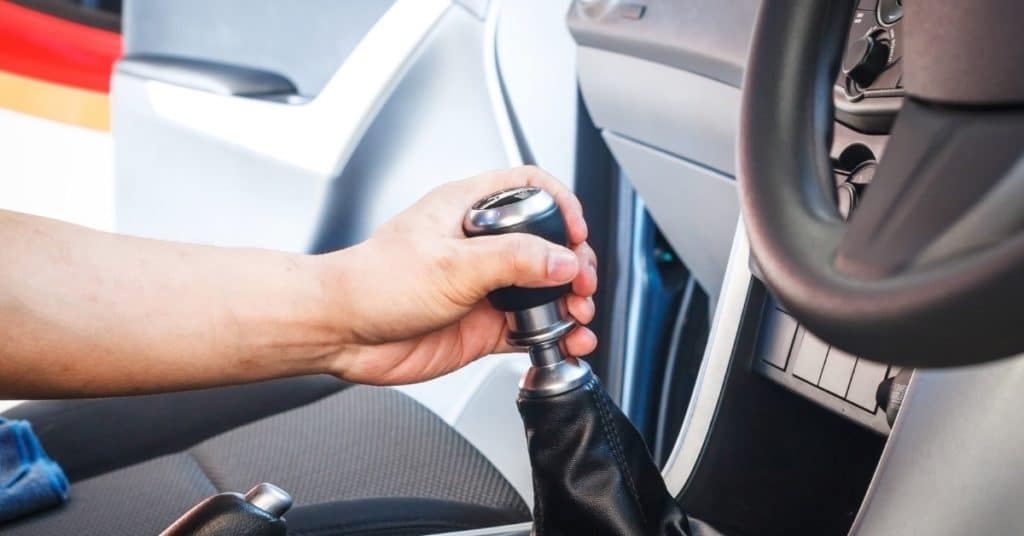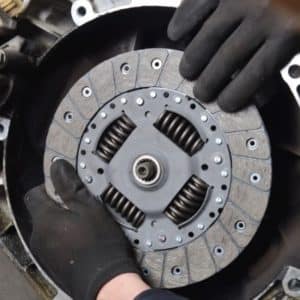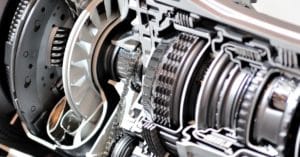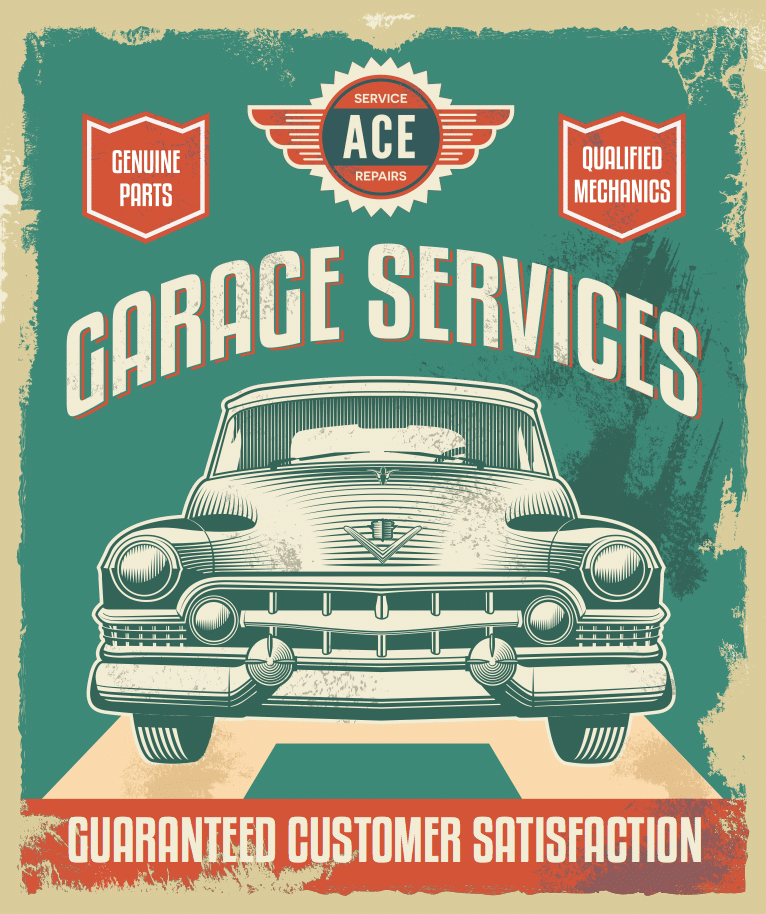
At Ace Auto Repair, our goal is to provide our customers with exceptional service and dependable, trustworthy mechanics who are skilled in clutch and transmission repairs. Our expert technicians take pride in their work and are dedicated to your satisfaction. If you are experiencing unusual sounds or behavior in your vehicle, we recommend you contact us today for reliable service you can count on, along with affordable prices.
For Guaranteed Clutch & Transmission Repairs in West Jordan, Utah, Contact the ASE Certified Transmission Repair Mechanics at Ace Auto Repair
Call the Master Mechanics at Ace Auto Repair
Table of Contents
What is a Clutch Assembly?
The clutch assembly is a critical component in a car's transmission system. It is responsible for disengaging and engaging the engine's power to the transmission, allowing the driver to shift gears smoothly. The assembly typically consists of several parts, including the clutch disc, pressure plate, flywheel, and release bearing. When the clutch pedal is pressed, the pressure plate releases the clutch disc, disengaging the engine from the transmission. When the pedal is released, the pressure plate clamps the clutch disc tightly against the flywheel, engaging the engine to the transmission and allowing the car to move. The proper functioning of the clutch assembly is essential for optimal performance and longevity of the vehicle.
How Often Should the Clutch Be Replaced?
The lifespan of a clutch can depend on a variety of factors, including driving style, traffic conditions, and vehicle type. However, on average, a clutch should be replaced every 60,000 to 100,000 miles.
It is important to note that this is just a rough estimate and that some clutches may need to be replaced sooner or later depending on individual driving habits and conditions.
There are a few signs that may indicate that it is time to replace your clutch. These include difficulty shifting gears, a burning smell coming from the engine, or a clutch pedal that feels spongy or sticks to the floor.
If you suspect that your clutch may be nearing the end of its lifespan, it is important to have it inspected by a professional mechanic. Replacing a clutch can be a complex and labor-intensive process, and it is important to ensure that it is done correctly to avoid damage to other components of the vehicle.
In summary, while there is no set timeframe for when a clutch should be replaced, it is generally recommended to replace it every 60,000 to 100,000 miles. If you notice any signs of clutch wear or damage, it is important to have it inspected by a professional mechanic as soon as possible.
Car Clutch Repair: Common Clutch Problems
There are several issues that are fairly common with clutches. These issues include:

- Worn Out Flywheel
- A clutch that "sticks." When you push the clutch to the floor and it fails to return to its normal position, it indicates a problem that may require the replacement of an external seal on the slave cylinder or clutch master.
- A clutch that "slips." Often times when your vehicle fails to move as it normally would or doesn't move at all, it indicates the clutch pedal needs adjustment or is worn. Clutches wear out over time, and may eventually require replacement.
- Gears not shifting smoothly. If you find it difficult to shift gears, it could indicate the clutch needs to be replaced. Problems shifting gears may be a sign of an electrical problem or indicate wear/damage of an internal or external transmission component.
- Squealing, clicking, snapping, or other noise. When you hear excessive noises that are unusual, it could signal that the bearings need to be replaced, or the clutch linkage needs lubricating.
If you think you are having issues with your clutch, it's best to bring it to a technician who can run a diagnostic test and help you pinpoint the problem.
Call the Master Mechanics at Ace Auto Repair
What Is Transmission in a Car?
In order for you to drive your vehicle at a certain speed, the wheels have to have power. This is the job of the transmission, which shifts gears and supplies the power to the wheels. In a manual transmission vehicle, the engine and transmission are disconnected when you push the clutch to change gears. In an automatic transmission vehicle, the transmission shifts gears for you.
How Does a Transmission Work?
When your engine burns fuel, it converts the energy into a power source that rotates the axles. The transmission takes the force of the engine and transforms it into a power source that can be controlled. The job of the transmission is to transfer the energy from the engine to the proper gear contained in the transmission.
For example, if the car is shifting from fourth to fifth gear on the interstate, the transmission will take the power from the engine, convert the torque to the right gear, and transfer it to the axles. That way, the transmission allows the power generated by the engine to rotate the wheels. Every gear in the transmission has a certain ratio to ensure the wheels don’t spin too quickly, leading to problems. In this manner, the transmission is one of the most important parts of a functional vehicle.
Automatic vs. Manual Transmission
There are two separate types of transmission: automatic transmissions and manual transmissions. Even though they perform the same task, they function very differently. With an automatic transmission, there is no clutch in the car. Therefore, the driver is not responsible for telling the car to shift gears. In contrast, a manual transmission requires input from the driver in the form of a clutch to tell the car to change gears.
A manual transmission, also known as a stick-shift, requires the driver to work the clutch and the stick in the center console to change gears. The stick connects to the transmission, allowing the driver to operate the transmission manually. There is a clutch disc that is located between the engine and the transmission. The clutch is released, the desired gear is chosen, and the clutch is re-engaged. In some situations, transmission problems could require a transmission clutch repair to be completed by transmission repair shops.
In contrast, an automatic transmission is tied to the engine using a hydraulic torque converter. There are two clutches that control the car as it shifts gears and it does not require any input from the driver. The car uses advanced hydraulics or electronics to monitor the speed of the car and the RPMs of the engine. Then, the car will shift gears automatically when required. This makes the vehicle nearly impossible to stall.
Transmission Repair: Common Transmission Problems
While clutches and transmissions often share the same noises, there are still problems that are unique to transmissions which can be overlooked if the clutch is working fine. These problems include:
- Gear slippage

- Humming, whining, clunking, or other strange noises
- Check engine light comes on
- Transmission won't go into gear
- Transmission inexplicably falls out of gear
- When in neutral, the transmission makes noise
- Reverse won't engage
- Transmission fluid is low or leaking
- Grinding noise upon shifting gears, or shaking of your vehicle
- A burning odor, typically caused by overheated transmission fluid
- Difficulty changing gears due to dragging clutch - this is usually due to excess slack in the clutch pedal
Importance of Transmission Fluid
In order for a vehicle to shift gears, the gears need to be properly lubricated. That is where transmission fluid comes into play. Transmission fluid is just about as important to a car as motor oil or the fuel itself. Without transmission fluid, the car would not be able to shift gears. Or, there would be so much friction that the transmission would simply burn up. For these reasons, it is important to address transmission problems quickly, as they might involve a transmission fluid leak. Automatic transmission leak repair services are critical and provide drivers with an opportunity to get their transmission fixed by a trained professional. When it comes to auto transmission repair, drivers should always rely on experienced professionals to ensure they receive the right parts and the best service for their transmission.
Transmission Repair Services We Offer at Ace Auto
We aim to provide our customers with every level of transmission repair they need, whether it's something small or large that they need. Some of our services include:
- Transmission diagnostic services to diagnose existing problems
- Transmission flush to eliminate debris in your transmission
- Transmission fluid change
- Transmission replacement and clutch replacement
- Transmission and clutch repairs
Having Clutch Problems With Your Vehicle? Schedule a Free Car Clutch Repair Quote in West Jordan, Utah
Ace Auto Is a Trusted Transmission Service Shop in Utah
If you've been asking, "How do I find the best transmission shop near me?" We've got you covered. We strive to be not only fast and efficient with our services, we are also friendly, reliable, and honest in every job we handle. Our mechanics are ASE Certified, which means they each have had ongoing industry training to keep up with the changes to the modern vehicles of today.
We are capable of working with just about any type of vehicle, and we are always honest about our limitations or what we can achieve. This is exactly why our clients have trusted us as the go-to transmission repair shop in Utah for a long time. Whether you need a basic transmission flush or something bigger like a rebuild or replacement, we can handle it.
We Keep Our Utah Transmission Services Affordable
It doesn't matter whether you need a full transmission replacement or just a transmission diagnostic test or transmission fluid change, we keep our services affordable. We offer free estimates to our clients so you know exactly how much we will charge when you first ask us about the transmission job you have. Throughout the repair process, we will let you know if we run into any issue that will drive up the cost and we will never do work to your clutch or transmission without your prior consent.
Do you need more information on transmissions or are concerned that the car problems you are experiencing are the result of your car's transmission going out?
Call the Certified Mechanics at Ace Auto Repair
Contact Ace Auto's Transmission Repair Shop in Utah Today
Ignoring clutch and transmission issues could result in costly damage or your vehicle becoming completely inoperable. At Ace Auto Repair we treat your vehicle as if it were our own. Our expert technicians are the most trusted throughout the Salt Lake Valley, providing you with a wide array of services including brake repair, tune-ups, oil changes, engine rebuild and replacement, and much more. Contact us today at 801-803-6016, or complete our online form for a free repair quote. When it comes to your vehicle, never settle for less than the best!



 Ace Auto Repair
Ace Auto Repair